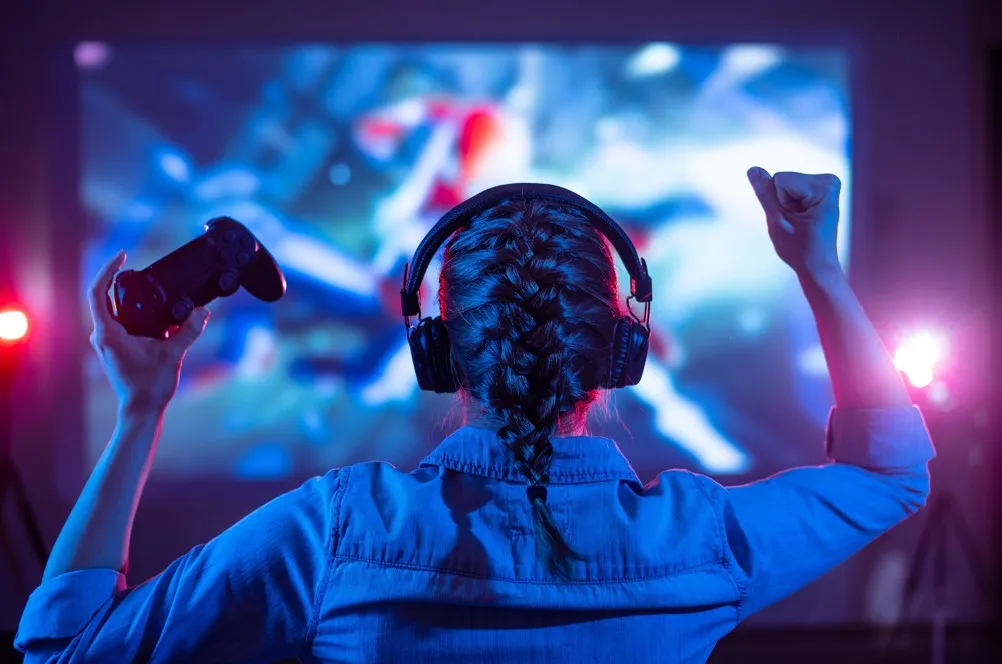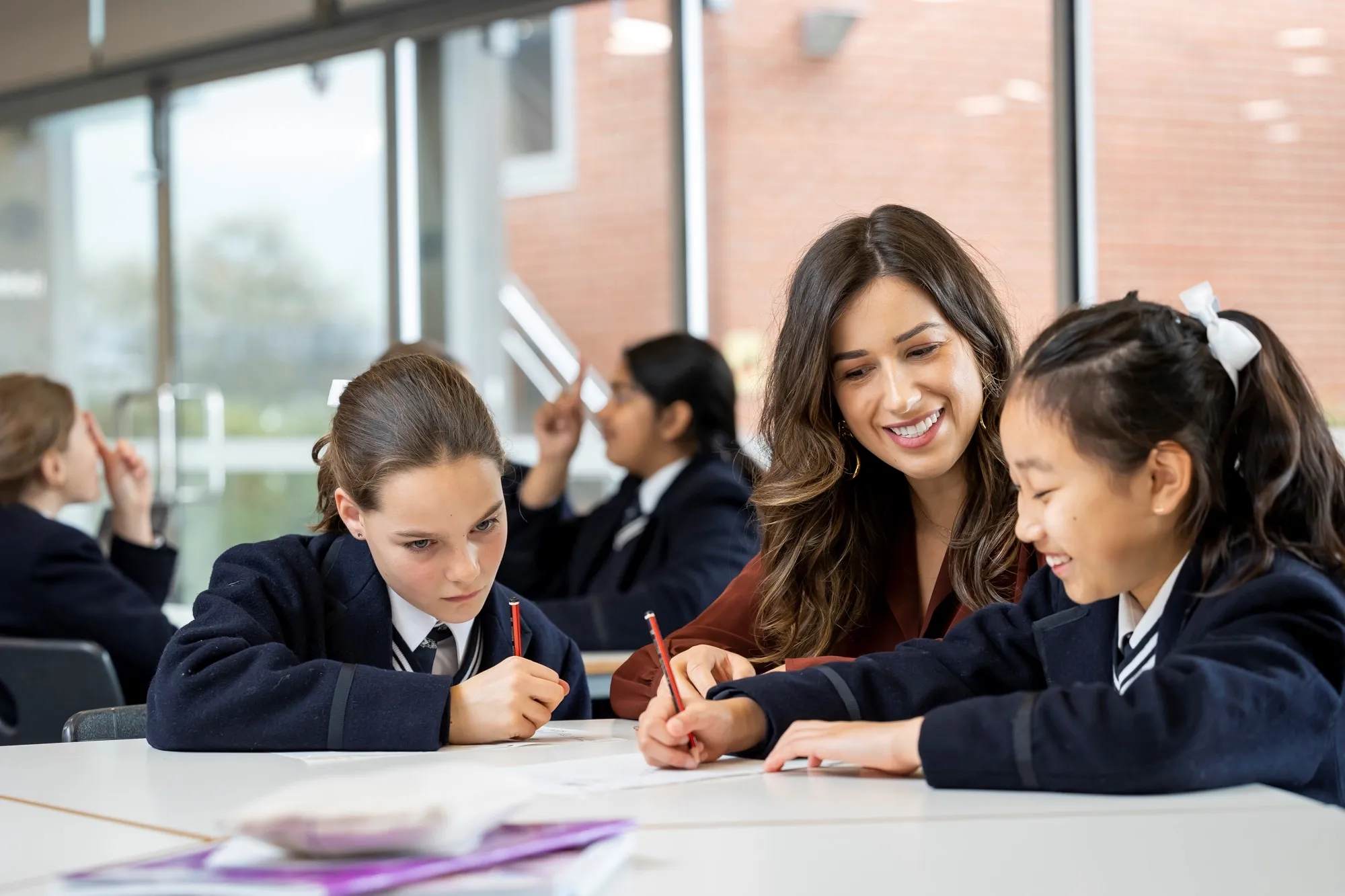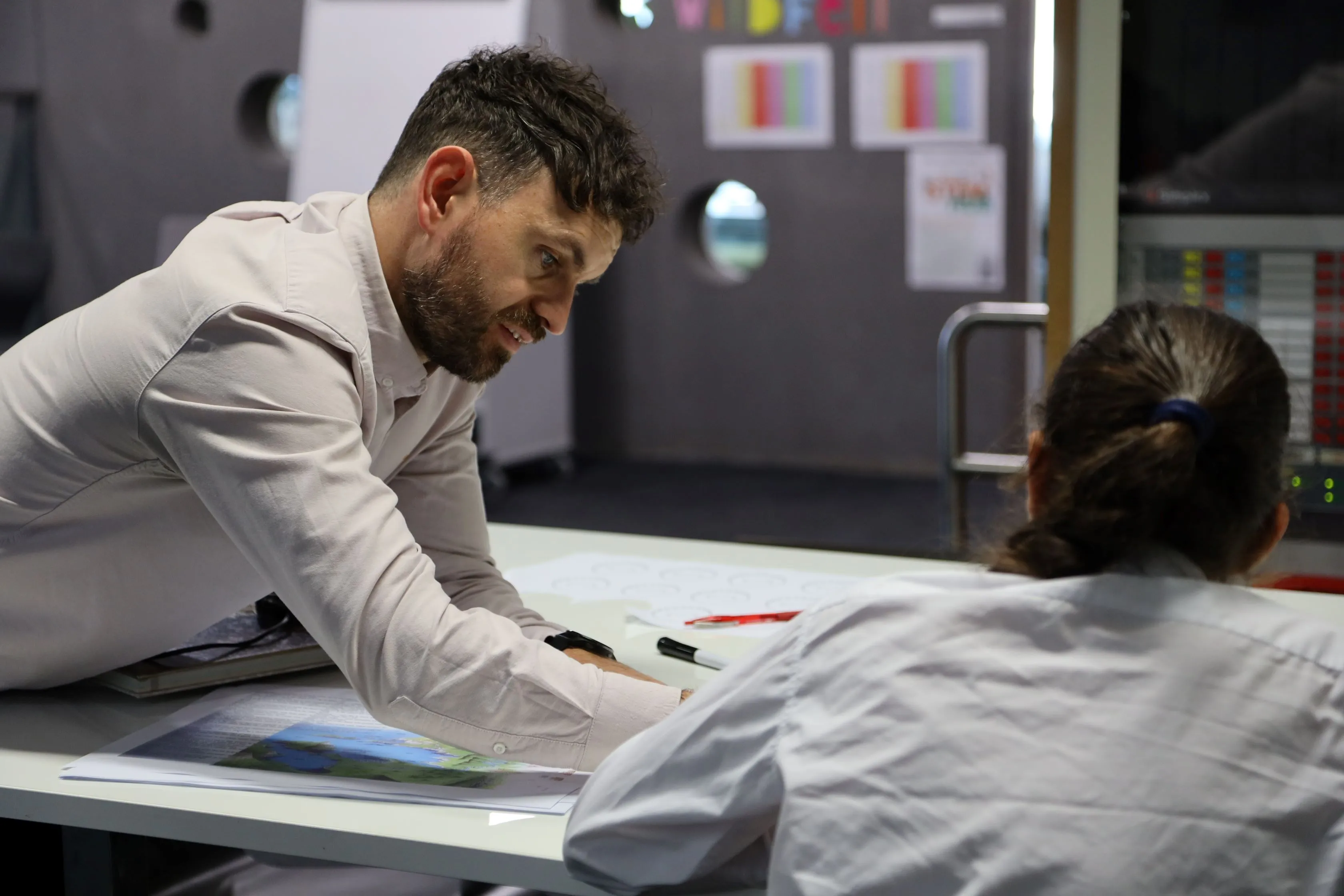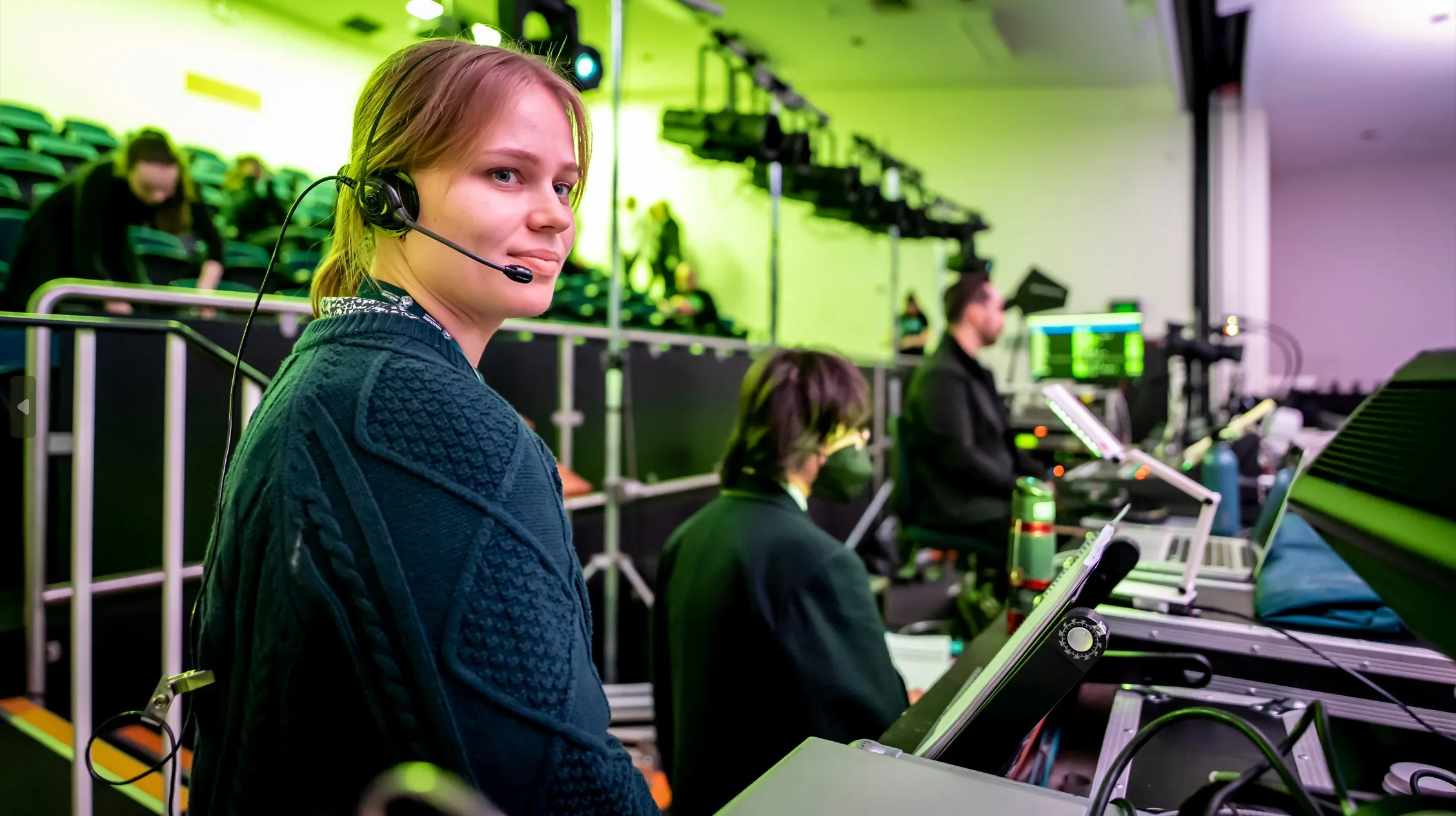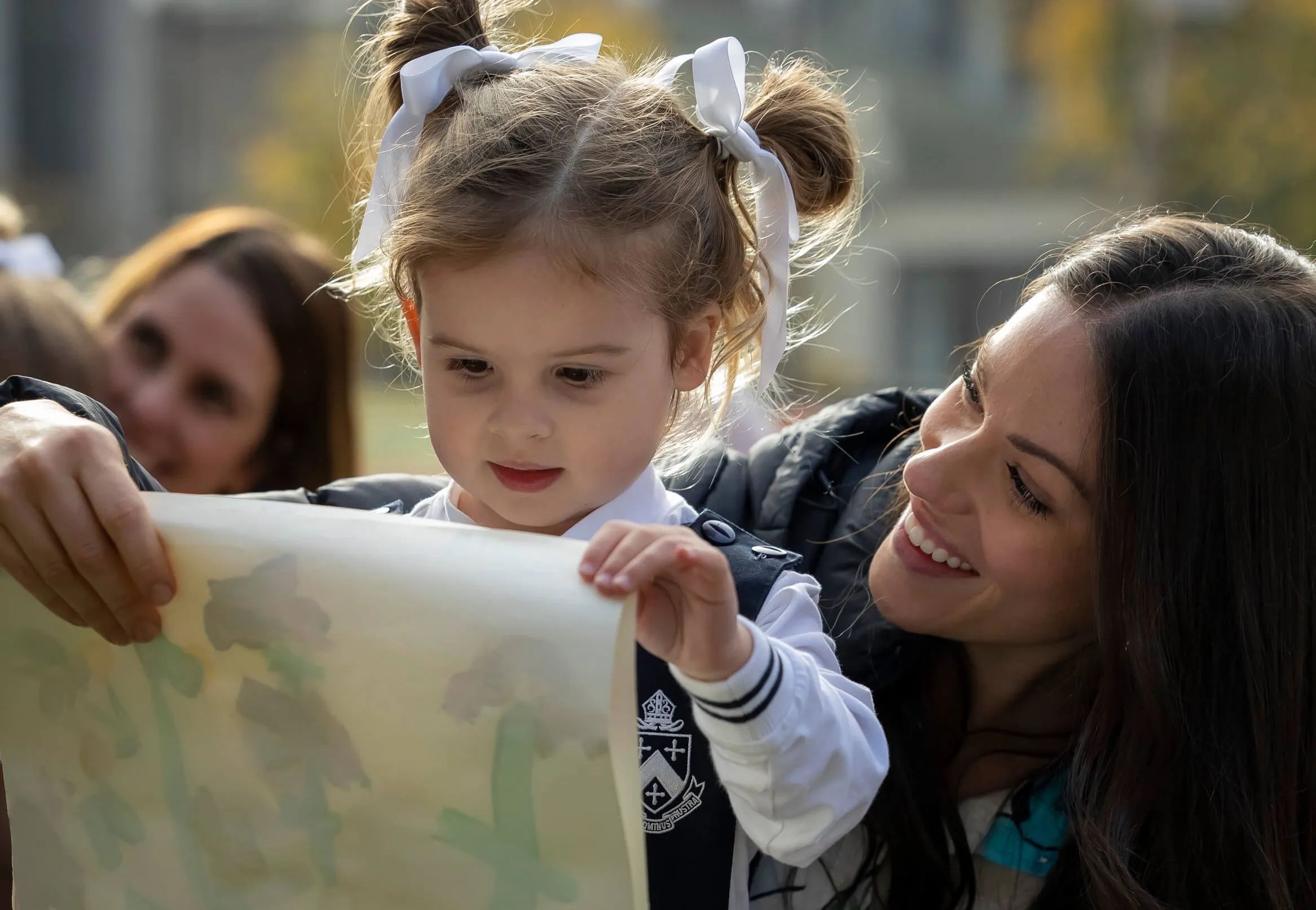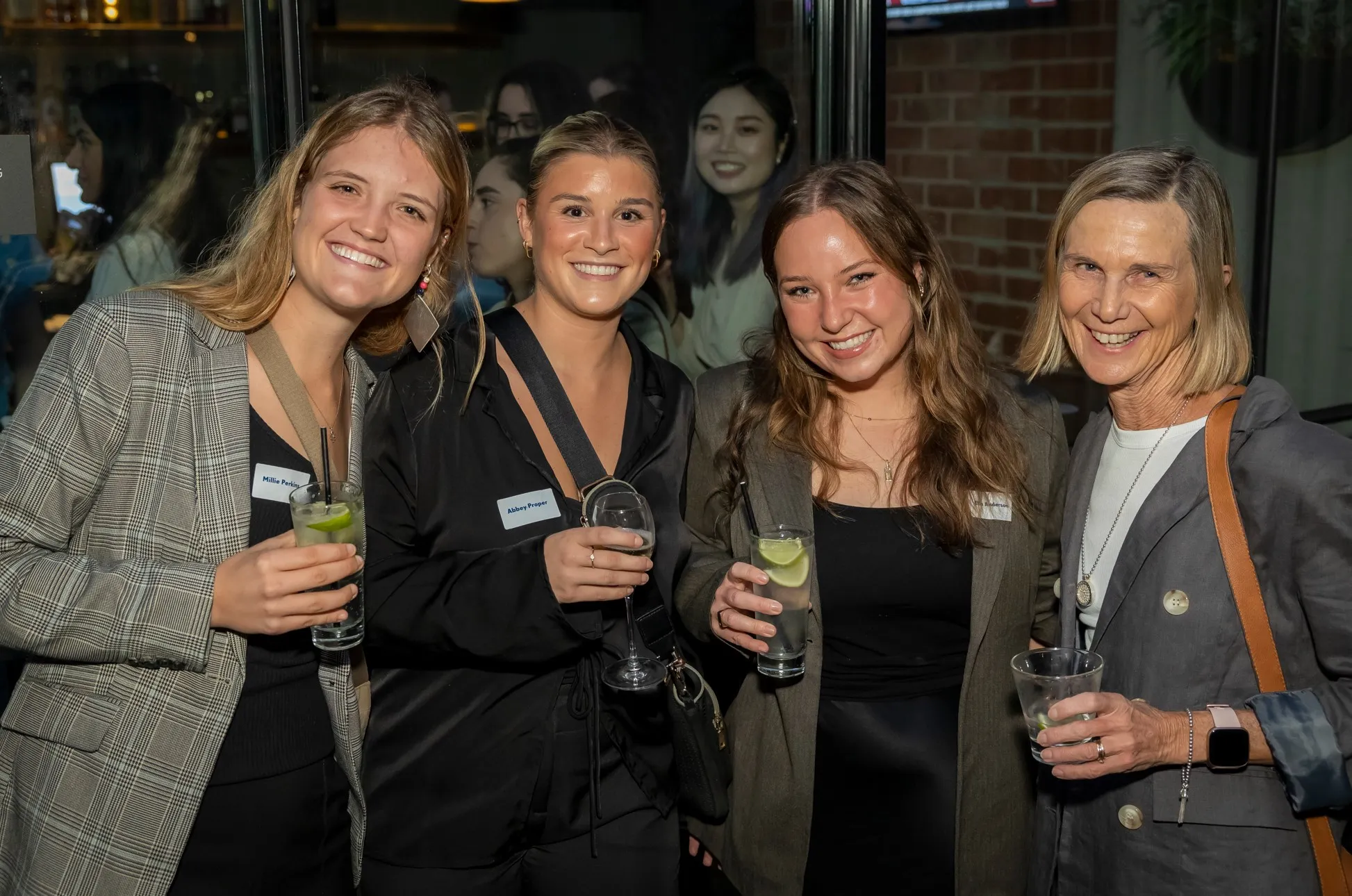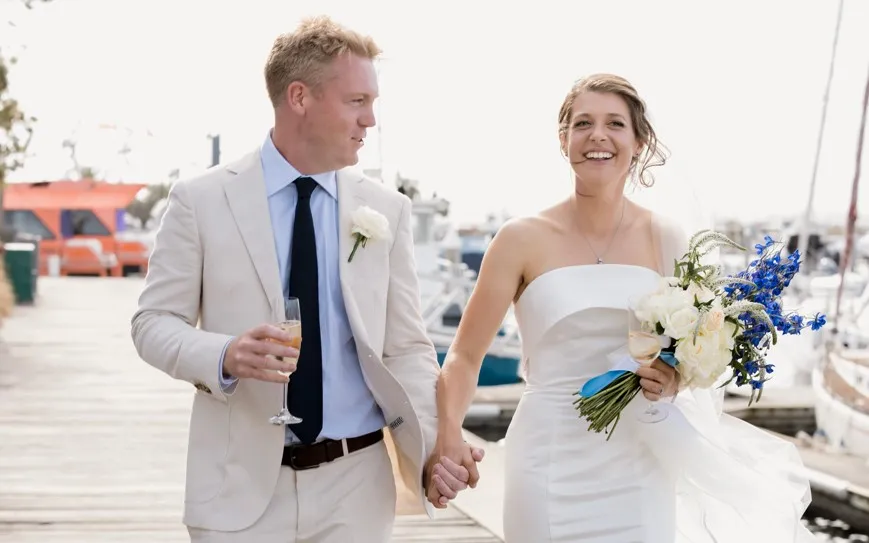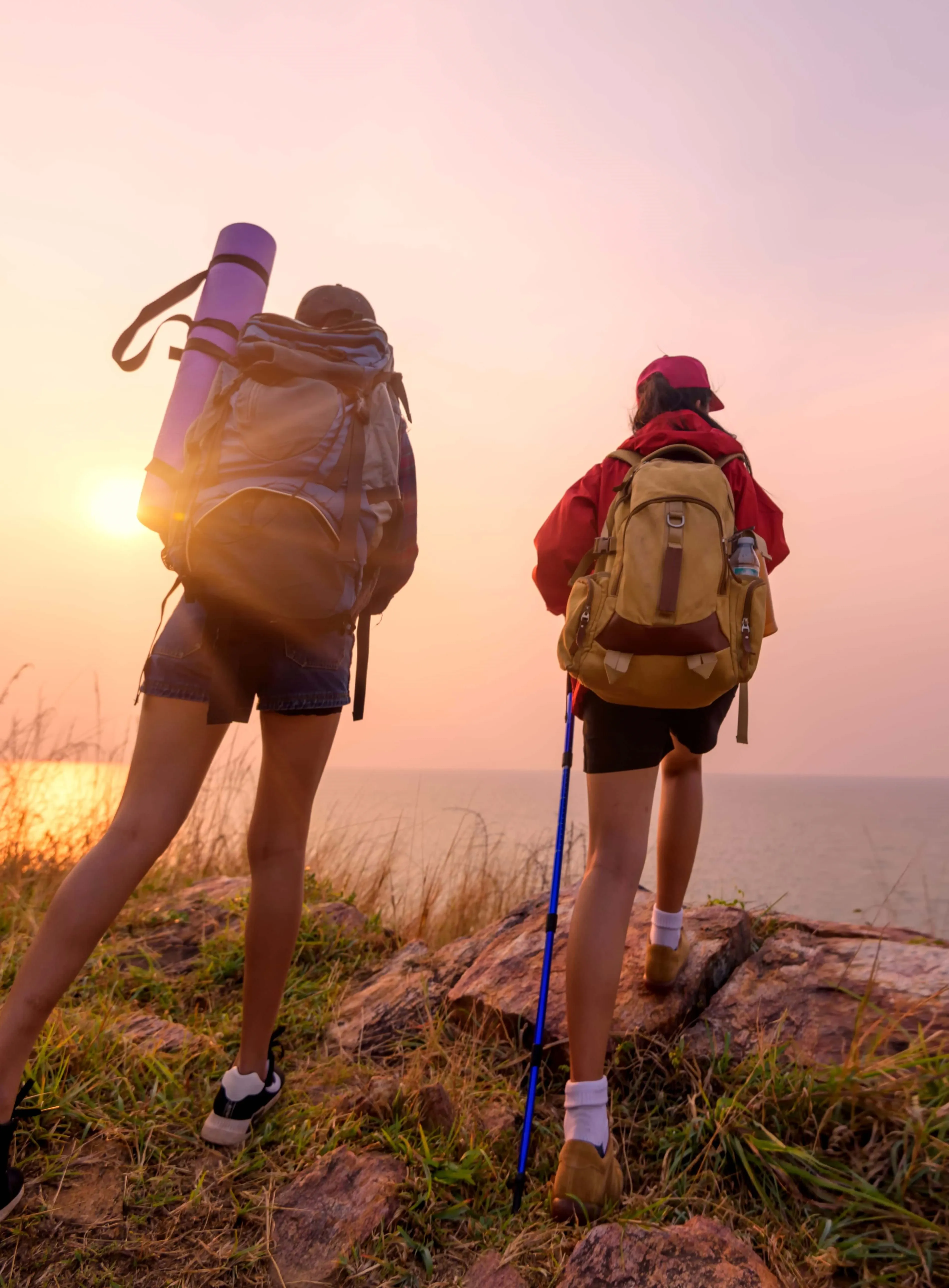

SWAP SCREEN TIME FOR GREEN TIME.


SWAP SCREEN TIME FOR GREEN TIME.
Swapping Screen Time for Green Time
The importance of “green time” is reinforced by Melbourne Girls Grammar’s Head of Outdoor Education, Robert Houghton.
“We suffer particularly in the West, in the developed West, with ‘nature deficit’," he says.

"Not enough people are getting out into nature and appreciating it,” Houghton continues, adding that “when [students] go outdoors regularly, and spend time there, they become more comfortable, and learn to appreciate it. This forms a habit, hopefully, for the rest of their lives.”
Houghton, who has been working in the field since 1997, earned his teaching qualifications in Outdoor Education and English at Bangor University in Wales and Gordonstoun School in the UK, the latter of which is King Charles III’s alma mater. His work has taken him all over the world to Singapore, Thailand, Malaysia, Vietnam, New Zealand, the UK, and France, before settling in Australia seven years ago. Throughout his travels, Houghton has developed a comprehensive understanding of Outdoor Education in all its forms, allowing him to devise a rigorous and innovative program for MGGS.
The Australian Institute of Family Studies (AIFS) cites “excessive screen time” as a top health concern for parents, with the ABC reporting that the new generation is forgoing time in nature for time on social media. It suggests that excessive screentime may have negative behavioural implications for children aged five to 17 years old, leading to anxiety, hyperactivity and self-esteem issues. Meanwhile, a 2020 review of 186 studies learned that time in nature, or “green time”, leads to positive mental health outcomes (as per the ABC). This has helped inform the School's priorities when it comes to Outdoor Education.
"Not enough people are getting out into nature and appreciating it,” Houghton continues, adding that “when [students] go outdoors regularly, and spend time there, they become more comfortable, and learn to appreciate it. This forms a habit, hopefully, for the rest of their lives.”
Houghton, who has been working in the field since 1997, earned his teaching qualifications in Outdoor Education and English at Bangor University in Wales and Gordonstoun School in the UK, the latter of which is King Charles III’s alma mater. His work has taken him all over the world to Singapore, Thailand, Malaysia, Vietnam, New Zealand, the UK, and France, before settling in Australia seven years ago. Throughout his travels, Houghton has developed a comprehensive understanding of Outdoor Education in all its forms, allowing him to devise a rigorous and innovative program for MGGS.
The Australian Institute of Family Studies (AIFS) cites “excessive screen time” as a top health concern for parents, with the ABC reporting that the new generation is forgoing time in nature for time on social media. It suggests that excessive screentime may have negative behavioural implications for children aged five to 17 years old, leading to anxiety, hyperactivity and self-esteem issues. Meanwhile, a 2020 review of 186 studies learned that time in nature, or “green time”, leads to positive mental health outcomes (as per the ABC). This has helped inform the School's priorities when it comes to Outdoor Education.
"Not enough people are getting out into nature and appreciating it,” Houghton continues, adding that “when [students] go outdoors regularly, and spend time there, they become more comfortable, and learn to appreciate it. This forms a habit, hopefully, for the rest of their lives.”
Houghton, who has been working in the field since 1997, earned his teaching qualifications in Outdoor Education and English at Bangor University in Wales and Gordonstoun School in the UK, the latter of which is King Charles III’s alma mater. His work has taken him all over the world to Singapore, Thailand, Malaysia, Vietnam, New Zealand, the UK, and France, before settling in Australia seven years ago. Throughout his travels, Houghton has developed a comprehensive understanding of Outdoor Education in all its forms, allowing him to devise a rigorous and innovative program for MGGS.
The Australian Institute of Family Studies (AIFS) cites “excessive screen time” as a top health concern for parents, with the ABC reporting that the new generation is forgoing time in nature for time on social media. It suggests that excessive screentime may have negative behavioural implications for children aged five to 17 years old, leading to anxiety, hyperactivity and self-esteem issues. Meanwhile, a 2020 review of 186 studies learned that time in nature, or “green time”, leads to positive mental health outcomes (as per the ABC). This has helped inform the School's priorities when it comes to Outdoor Education.
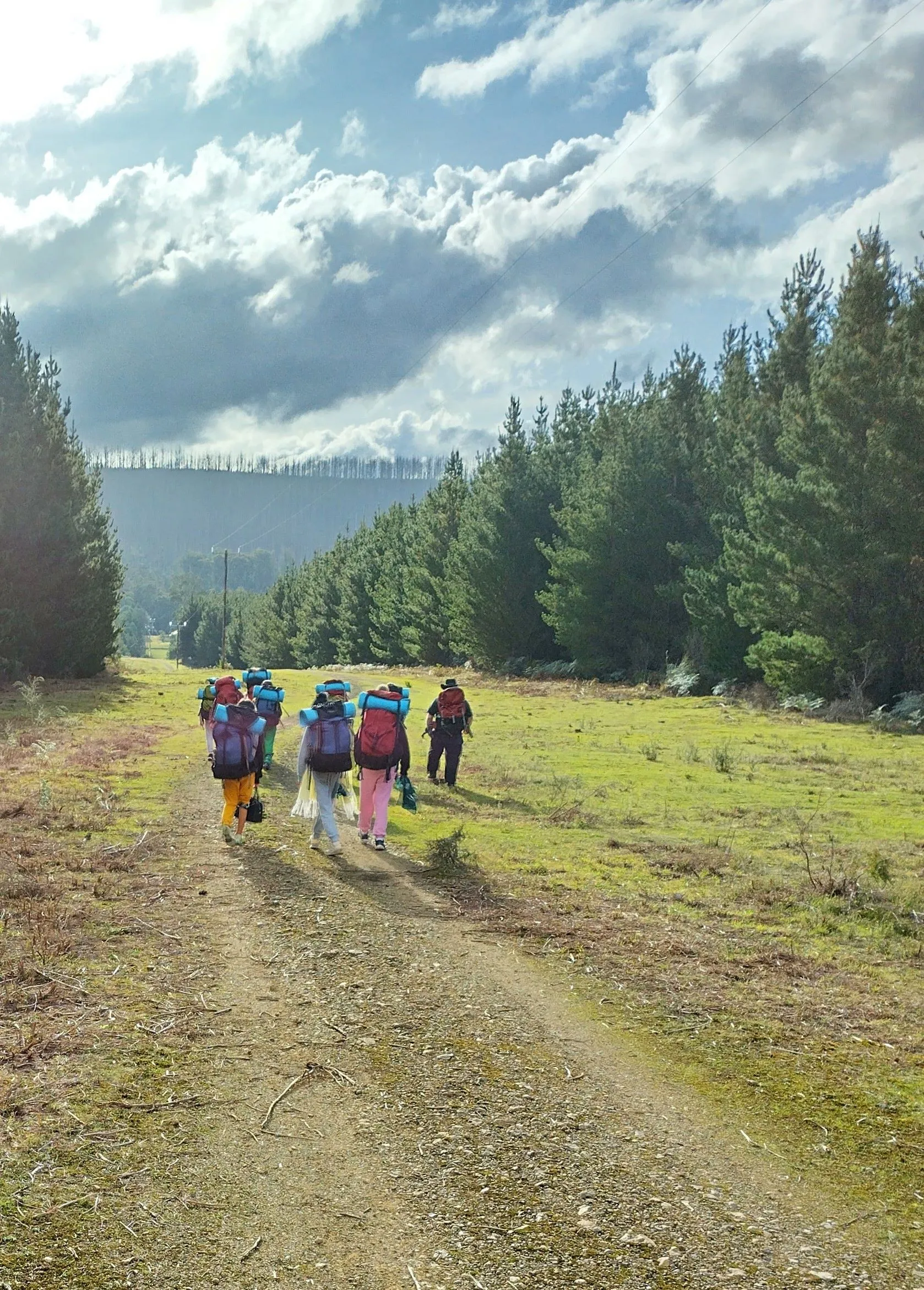

Year 7 students enjoy 'green time' during their School camp.



Year 7 students enjoy 'green time' during their School camp.
The School’s priority for Outdoor Education is to form a logical progression between year groups, commencing in Prep and culminating in Year 10. It is designed to also include opt-in opportunities for Years 11 and 12.
“The core comprises year level camps that will start in Year 2. Then, each year the students will build on their experiences and their learning from the previous camps. The goal is to get to a ‘graduation’ expedition,” Houghton says.
To compliment the extended experience, Houghton has devised one day a term for Prep to Year 8 where “they will develop specific outdoor skills and increase their comfort with the outdoors. This will also provide them with the opportunity to act on environmental knowledge.”
The School’s priority for Outdoor Education is to form a logical progression between year groups, commencing in Prep and culminating in Year 10. It is designed to also include opt-in opportunities for Years 11 and 12.
“The core comprises year level camps that will start in Year 2. Then, each year the students will build on their experiences and their learning from the previous camps. The goal is to get to a ‘graduation’ expedition,” Houghton says.
To compliment the extended experience, Houghton has devised one day a term for Prep to Year 8 where “they will develop specific outdoor skills and increase their comfort with the outdoors. This will also provide them with the opportunity to act on environmental knowledge.”
The School’s priority for Outdoor Education is to form a logical progression between year groups, commencing in Prep and culminating in Year 10. It is designed to also include opt-in opportunities for Years 11 and 12.
“The core comprises year level camps that will start in Year 2. Then, each year the students will build on their experiences and their learning from the previous camps. The goal is to get to a ‘graduation’ expedition,” Houghton says.
To compliment the extended experience, Houghton has devised one day a term for Prep to Year 8 where “they will develop specific outdoor skills and increase their comfort with the outdoors. This will also provide them with the opportunity to act on environmental knowledge.”


The Year 2 sleepover – where MGGS's Outdoor Education journey begins.



The Year 2 sleepover – where MGGS's Outdoor Education journey begins.
This approach can be broken down into the acronym: SAGES.
S is for skills
The hard skills, the things that we need to learn to be comfortable. So that might be how to tie your laces properly, how to put a rucksack on, tying a knot, paddling a boat or putting up a tent. They make us comfortable in the outdoors and prepare us for being able to learn.
A is adventure
And with that exploration because that's a fundamental part of who we are as a species. We talk about beginning tasks and journeys with uncertain outcomes. A group of students out hiking might get lost, we're not going to let them get completely lost, but they might ‘get lost’ for a couple of hours. Those are real world consequences. And you can learn a lot about your own tolerance of those, and you can learn that failure is okay.
G is growth
That's the personal development part of educating future adults. It covers all those unmeasurable things that employers really like. Things like how and when to be a leader; how to be a follower; when to be a follower; how to be a flexible problem solver; how to have a positive mindset; how to have resilience and grit; the list goes on.
E is the environment
Our objective is to build an understanding of our local, national and global environment. And although it's not always easy, I think it's important to include an indigenous understanding of the environment.
S is service
We come from a privileged society within a very privileged country, so we need to learn how to give back. That can be amongst our local community, or it could be within the School, or more broadly within Melbourne, or Australia, or the world.
This approach can be broken down into the acronym: SAGES.
S is for skills
The hard skills, the things that we need to learn to be comfortable. So that might be how to tie your laces properly, how to put a rucksack on, tying a knot, paddling a boat or putting up a tent. They make us comfortable in the outdoors and prepare us for being able to learn.
A is adventure
And with that exploration because that's a fundamental part of who we are as a species. We talk about beginning tasks and journeys with uncertain outcomes. A group of students out hiking might get lost, we're not going to let them get completely lost, but they might ‘get lost’ for a couple of hours. Those are real world consequences. And you can learn a lot about your own tolerance of those, and you can learn that failure is okay.
G is growth
That's the personal development part of educating future adults. It covers all those unmeasurable things that employers really like. Things like how and when to be a leader; how to be a follower; when to be a follower; how to be a flexible problem solver; how to have a positive mindset; how to have resilience and grit; the list goes on.
E is the environment
Our objective is to build an understanding of our local, national and global environment. And although it's not always easy, I think it's important to include an indigenous understanding of the environment.
S is service
We come from a privileged society within a very privileged country, so we need to learn how to give back. That can be amongst our local community, or it could be within the School, or more broadly within Melbourne, or Australia, or the world.
This approach can be broken down into the acronym: SAGES.
S is for skills
The hard skills, the things that we need to learn to be comfortable. So that might be how to tie your laces properly, how to put a rucksack on, tying a knot, paddling a boat or putting up a tent. They make us comfortable in the outdoors and prepare us for being able to learn.
A is adventure
And with that exploration because that's a fundamental part of who we are as a species. We talk about beginning tasks and journeys with uncertain outcomes. A group of students out hiking might get lost, we're not going to let them get completely lost, but they might ‘get lost’ for a couple of hours. Those are real world consequences. And you can learn a lot about your own tolerance of those, and you can learn that failure is okay.
G is growth
That's the personal development part of educating future adults. It covers all those unmeasurable things that employers really like. Things like how and when to be a leader; how to be a follower; when to be a follower; how to be a flexible problem solver; how to have a positive mindset; how to have resilience and grit; the list goes on.
E is the environment
Our objective is to build an understanding of our local, national and global environment. And although it's not always easy, I think it's important to include an indigenous understanding of the environment.
S is service
We come from a privileged society within a very privileged country, so we need to learn how to give back. That can be amongst our local community, or it could be within the School, or more broadly within Melbourne, or Australia, or the world.
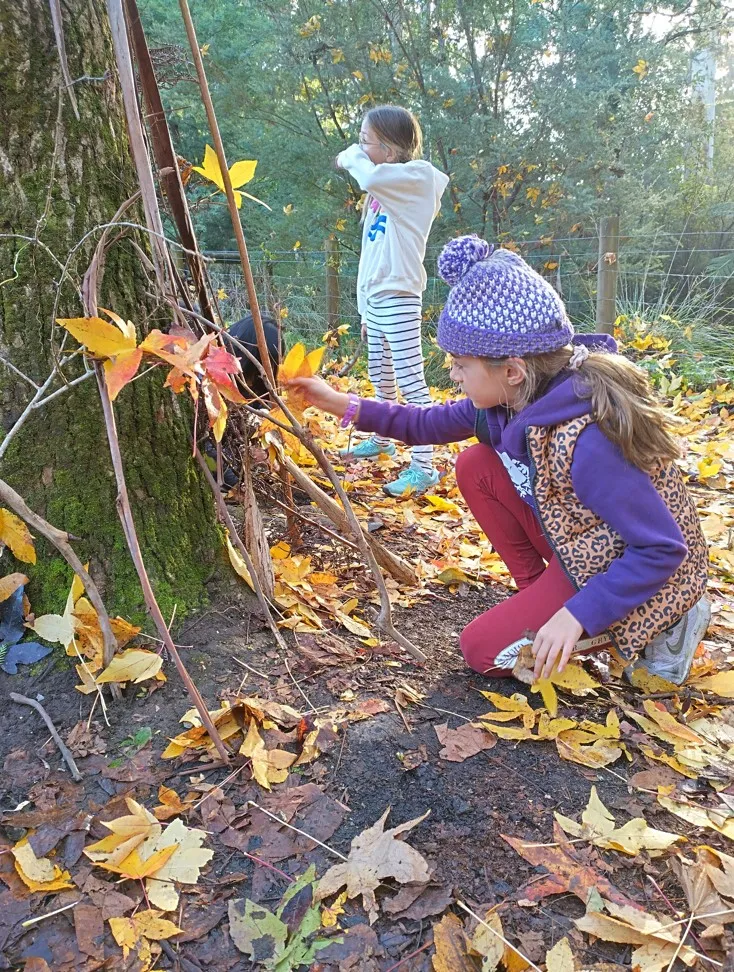

A young Grammarian appreciating nature during Year 4 camp.



A young Grammarian appreciating nature during Year 4 camp.
%20(1).webp)
%20(1).webp)
A group of Year 9 students undertook an immersion journey to Arnhem Land, NT.


A young Grammarian appreciating nature during Year 4 camp.
%20(1).webp)
%20(1).webp)
A group of Year 9 students undertook an immersion journey to Arnhem Land, NT.
It’s this SAGES approach, which has been formulated after years of experience and experimentation, that allows MGGS’s Outdoor Education program to differentiate itself from other institutions.
“I think what’s particularly innovative is approaching Outdoor Education with the end goal in mind from the beginning,” Houghton says. "The end goal is creating a certain type of Grammarian who has a certain set of skills and a particular mindset."
Finally, while other programs often centre around travel, MGGS will be providing a healthy balance of external and internal nature journeys, ensuring that Outdoor Education is effectively incorporated into the School’s culture.
"Putting time into exploring and developing an appreciation of and respect for the natural environment has to be our end goal."
- Robert Houghton, Head of Outdoor Education
We want our Grammarians to extend themselves beyond the constraints of the digital screen, or interactions that are had at arm’s length and venture out to have their own lived experiences with the world.
REFERENCES:
https://aifs.gov.au/resources/short-articles/too-much-time-screens
https://www.abc.net.au/news/science/2020-09-05/screen-time-mental-health-kids-adolescents/12612454
It’s this SAGES approach, which has been formulated after years of experience and experimentation, that allows MGGS’s Outdoor Education program to differentiate itself from other institutions.
“I think what’s particularly innovative is approaching Outdoor Education with the end goal in mind from the beginning,” Houghton says. "The end goal is creating a certain type of Grammarian who has a certain set of skills and a particular mindset."
Finally, while other programs often centre around travel, MGGS will be providing a healthy balance of external and internal nature journeys, ensuring that Outdoor Education is effectively incorporated into the School’s culture.
"Putting time into exploring and developing an appreciation of and respect for the natural environment has to be our end goal."
- Robert Houghton, Head of Outdoor Education
We want our Grammarians to extend themselves beyond the constraints of the digital screen, or interactions that are had at arm’s length and venture out to have their own lived experiences with the world.
REFERENCES:
https://aifs.gov.au/resources/short-articles/too-much-time-screens
https://www.abc.net.au/news/science/2020-09-05/screen-time-mental-health-kids-adolescents/12612454







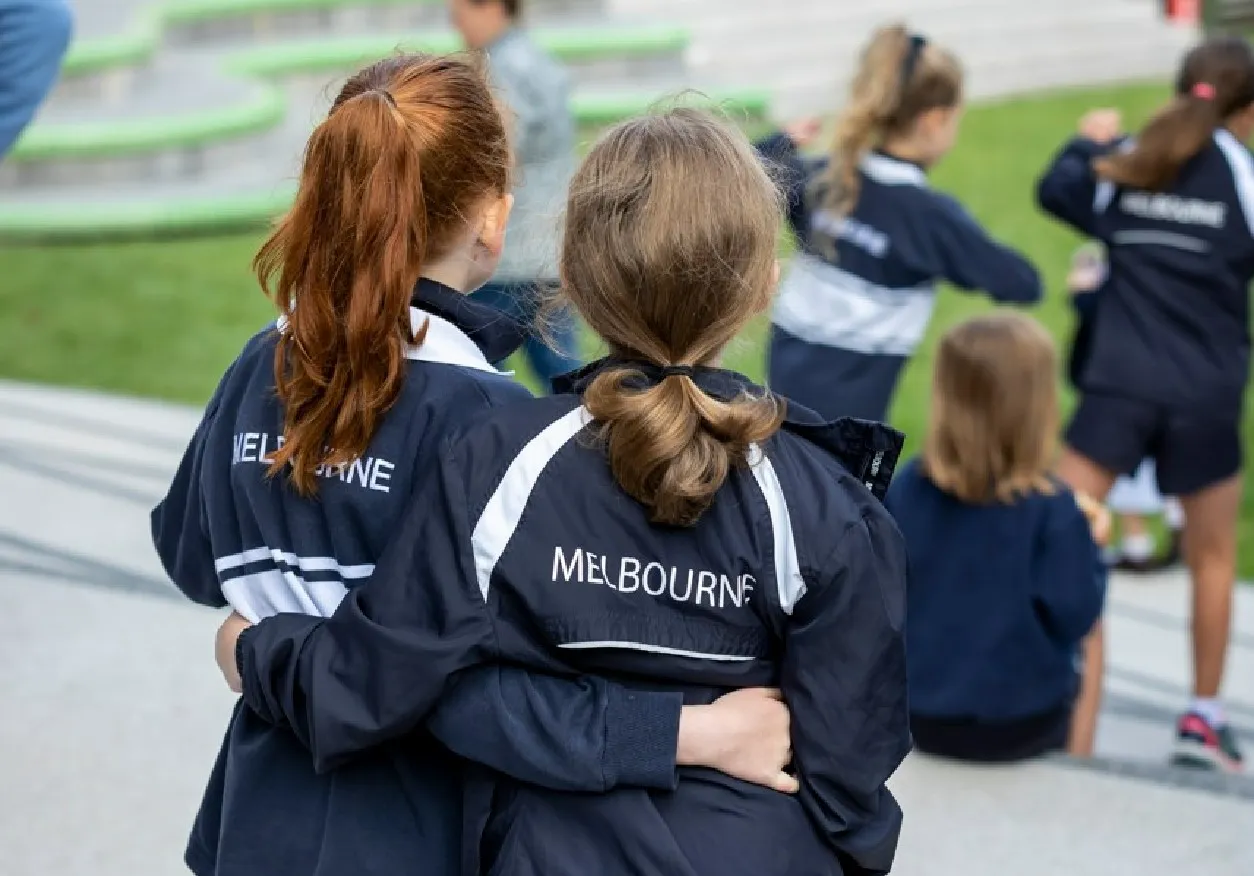

.webp)
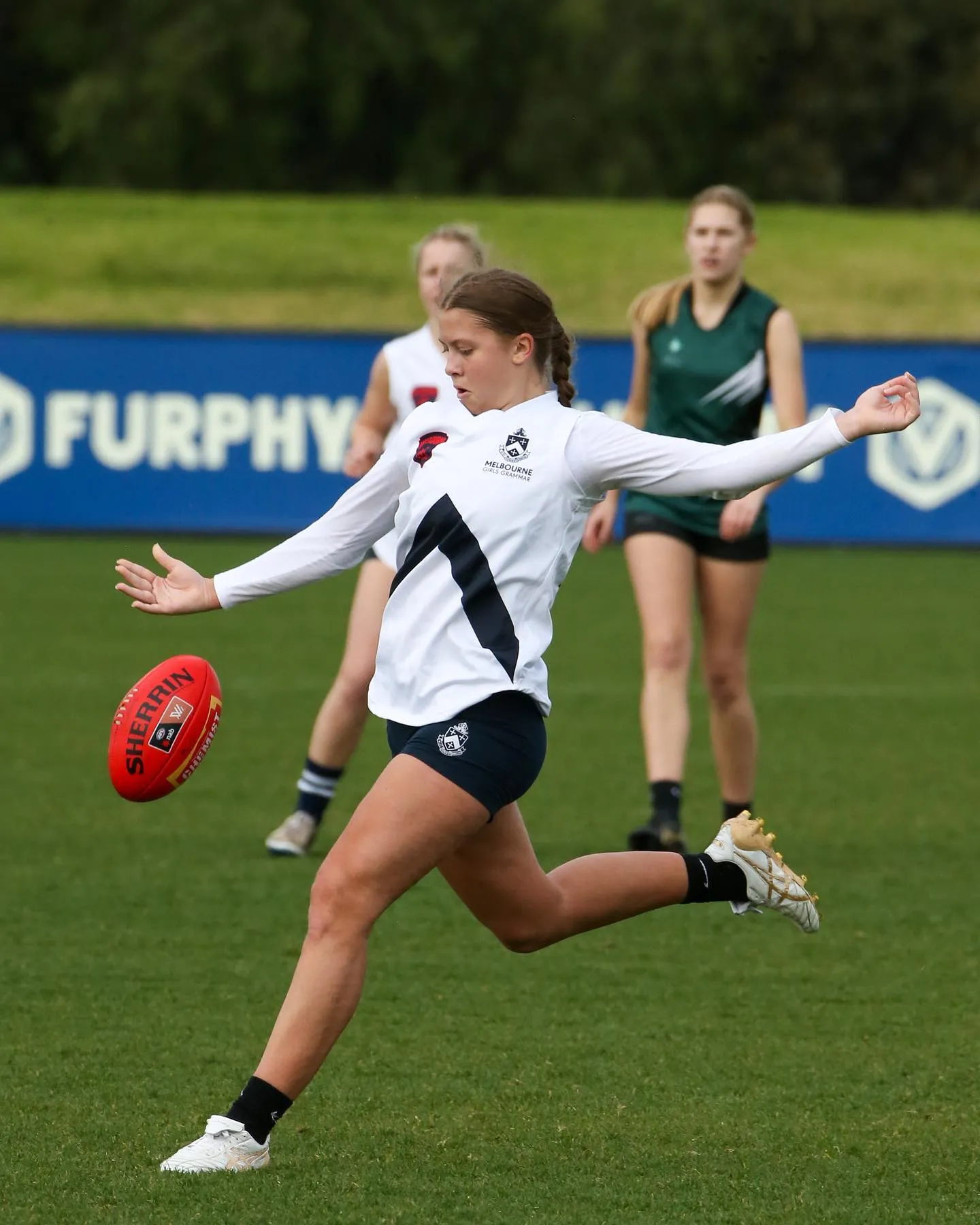
.webp)
